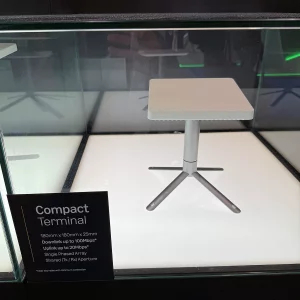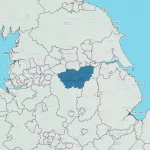Sponsored Links
Europe Approves Ofcom UK Plan to Open BT Fibre Optic Broadband Network
Posted: 03rd Jun, 2010 By: MarkJ
 The European Commission (EC) has approved an Ofcom UK proposal that would oblige BT to provide 'virtual' unbundled ( LLU ) access to its superfast next generation fibre optic broadband platform. The move would allow a rival ISP, such as TalkTalk or Sky Broadband UK, more access and control over BT's latest range of 'up to' 40Mbps FTTC and 100Mbps FTTH / P broadband products, resulting in a greater freedom to differentiate their packages (cheaper packages etc.).
The European Commission (EC) has approved an Ofcom UK proposal that would oblige BT to provide 'virtual' unbundled ( LLU ) access to its superfast next generation fibre optic broadband platform. The move would allow a rival ISP, such as TalkTalk or Sky Broadband UK, more access and control over BT's latest range of 'up to' 40Mbps FTTC and 100Mbps FTTH / P broadband products, resulting in a greater freedom to differentiate their packages (cheaper packages etc.).Virtual Unbundled Local Access (VULA) is different from BT's existing physical LLU solution. Physical LLU allows rivals to install their own hardware at the telephone exchange and to even take full control of a telephone line. By contrast 'Virtual' LLU means that BT still effectively retains control over the physical line but gives rivals much more management freedom over the connection.
The EC's Digital Agenda Commissioner, Neelie Kroes, said:
"In this specific instance, virtual unbundling seems the best option to safeguard competition and enable consumers to benefit from a wider range of services provided over next generation fibre infrastructure. However, this interim solution is not a long term alternative to physical fibre unbundling, which should be imposed as soon as possible."
"In this specific instance, virtual unbundling seems the best option to safeguard competition and enable consumers to benefit from a wider range of services provided over next generation fibre infrastructure. However, this interim solution is not a long term alternative to physical fibre unbundling, which should be imposed as soon as possible."
VULA should allow product differentiation and innovation similar to LLU and thus give ISPs a sufficient degree of control, including quality of service, over the local connection to the end-user. However, it does not give alternative operators the same freedom to offer retail products as they could through a fully unbundled fibre optic line.
The EC therefore believes that VULA should be just a transitory measure and one that must be replaced by true fibre unbundling as soon as it is technically and economically feasible. In its March 2010 consultation Ofcom envisaged a lifespan of roughly 4 years. This makes sense because BT has only just begun the £2.5bn process of rolling out related technologies to 66% of the UK population by 2015. BT might not have agreed to do that had they been forced to open up too soon.
The Commission further pointed out that, contrary to Ofcom's proposal, prices for VULA should be cost-oriented. By contrast Ofcom had proposed to give BT more control to set prices. However EU regulatory framework does still state that such prices can be adjusted to take into account investment risk, which allows some wriggle room. We suspect that this could be seen as a moderate stumbling block.
Ofcom's current consultation (original news), which also proposed that BT should open up access into their underground and telegraph pole cable ducts, closed on 1st June 2010. The conclusions are expected to be published sometime this Autumn 2010. Several ISPs , not least TalkTalk and Sky Broadband , have based some of their future plans on a favourable outcome.
Search ISP News
Search ISP Listings
Search ISP Reviews
Latest UK ISP News








Cheap BIG ISPs for 100Mbps+
150,000+ Customers | View More ISPs
Cheapest ISPs for 100Mbps+
Modest Availability | View More ISPs
Latest UK ISP News
Helpful ISP Guides and Tips
Sponsored Links
The Top 15 Category Tags
- FTTP (6722)
- BT (3863)
- Politics (3037)
- Business (2736)
- Openreach (2629)
- Building Digital UK (2488)
- Mobile Broadband (2435)
- FTTC (2132)
- Statistics (2103)
- 4G (2063)
- Virgin Media (1997)
- Ofcom Regulation (1761)
- 5G (1693)
- Fibre Optic (1587)
- Wireless Internet (1581)
Sponsored
Copyright © 1999 to Present - ISPreview.co.uk - All Rights Reserved - Terms , Privacy and Cookie Policy , Links , Website Rules































